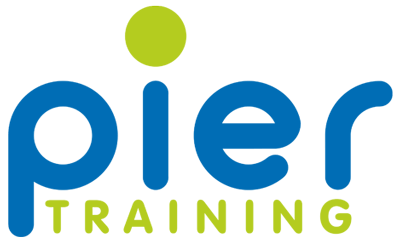short courses
NCFE CACHE L3 DIPLOMA IN HEALTHCARE SUPPORT – ADULT NURSING PATHWAY
About this programme
The NCFE CACHE Level 3 Diploma in Healthcare Support offers a specialised pathway in Adult Nursing. This qualification is designed to provide learners with the knowledge, understanding, and skills required to work in healthcare support roles, specifically within nursing, surgical and theatre environments.
DELIVERY: Blended learning
DURATION : 12 months
NUMBER OF SESSIONS: 12
TUTOR: Sector specialist qualified in Clinical Healthcare
COHORT DATES: Please contact our team to find out about next cohort start
Session 1: Personal Development and Study Skills
Units:
- DHCS 3 Promote personal development in care settings
- DHCS 14 Study skills for senior healthcare support workers
Topics:
- Reflective practice
- Evaluating own performance
- Personal development planning
- Study skills and independent learning
- Research techniques
- Plagiarism and referencing
Session 2: Responsibilities and Duty of Care
Units:
- DHCS 7 Responsibilities of a senior healthcare support worker
- DHCS 8 Duty of care in care settings
Topics:
- Legislation and guidelines
- Delegated healthcare tasks
- Quality assurance processes
- Duty of care and duty of candour
- Addressing conflicts and dilemmas
- Responding to concerns and complaints
Session 3: Effective Communication and Handling Information
Units:
- DHCS 1 Effective communication in care settings
- DHCS 2 Promote effective handling of information in care settings
Topics:
- Importance of effective communication
- Communication needs and preferences
- Overcoming barriers to communication
- Role of advocacy in communication
- Confidentiality in care settings
- Legislation and codes of practice
- Data security in electronic and manual systems
- Supporting others in handling information
Session 4: Health, Safety & Wellbeing, Infection control, decontamination, and waste
Units:
- DHCS 6 Promote health, safety, and wellbeing in care settings
- DHCS 11 Cleaning, decontamination, and waste management
- DHCS 10 Maintain infection prevention and control in a care setting
Topics:
- Health and safety legislation
- Risk assessment
- Infection control / Types and chain of infection
- Infection control practices
- Fire safety and emergency procedures
- Environmental cleaning principles
- Decontamination & Waste management practices
Session 5: Person-Centred Practice, Equality and Safeguarding
Units:
- DHCS 4 Person-centred practice, choice, and independence
- DHCS 5 Promote equality and inclusion in care settings
- DHCS 9 Safeguarding and protection in care settings
Topics:
- Person-centred values
- Building relationships with individuals
- Active participation in care planning
- Promoting independence and choice / Inclusive practice
- Principles of diversity, equality, and inclusion
- Effects of discrimination
- Types of abuse and signs
- Responding to suspected abuse
- National and local safeguarding policies
Session 6: Mental Health Awareness and Wellbeing Communication
Units:
- DHCS 12 Understand mental ill health (Knowledge only unit)
- AN37 Awareness of mental health legislation (Knowledge only unit)
- DHCS 13 Communicate with individuals about promoting their health and wellbeing
Topics:
- Types of mental ill health
- Impact on individuals and their networks
- Early intervention and support
- Relationship between health, wellbeing, and lifestyle
- Communicating health promotion messages
- Supporting informed decisions
Session 7: Pain and Discomfort Management
Units:
- DHCS 17 Provide support to manage pain and discomfort
- DHCS 18 Contribute to monitoring the health of individuals affected by health conditions
Topics:
- Approaches to managing pain
- Supporting individuals in pain
- Monitoring and reporting pain management
- Importance of monitoring health
- Carrying out observations
- Recording and reporting observations
Session 8: Quality Standards and Service Improvement
Units:
- DHCS 15 Maintaining quality standards in the health sector
- DHCS 16 Service improvement within the health sector
Topics:
- Quality standards and legislation
- Working with others to maintain quality
- Monitoring and improving quality
- Evaluating work and identifying improvements
- Making constructive suggestions
- Implementing and supporting changes
Session 9: Physiological Measurements and Understand the administration of medication
Units:
- DHCS 19 Undertake physiological measurements
- AN34 Understand the administration of medication (Knowledge only unit)
Topics:
- Legislation and guidelines
- Principles of physiological measurements
- Recording and reporting results
- Standard precautions and protocols
- Procedures for administration of medication
- Management of medications and administration records
Session 10: Understand the process & experience of Dementia and Understand the effect of dementia on end-of-life care
Units:
- AN35 Understand the process & experience of Dementia (Knowledge only unit)
- AN48 Understand the effect of dementia on end-of-life care (Knowledge only unit)
Topics:
- The Neurology of dementia
- Diagnosis of dementia
- Consideration for individuals with dementia at end of life
- How to support carers of individuals with dementia at end of life
Session 11: Understand long term conditions and Frailty and Understand end of life care for individuals with specific health needs
Units:
- AN37 Understand long term conditions & Frailty (Knowledge only unit)
- AN53 Understand end of life care for individuals with specific health needs (Knowledge only unit)
Topics:
- What is frailty
- What are long term conditions
- Considerations for individuals at end of life with specific health needs
- Supporting symptoms at end of life
- How to support significant others at the end of life of an individual with specific health needs
Session 12: Review
- Missed sessions / Assignments not yet complete and Claim to Competence ( Reflection )
Fill in the form and a Pier Training representative will contact you to discuss the next steps of your enrolment.
We at Pier Training would be very happy to discuss any aspect of this or any other training programmes you may be interested in. Please don’t hesitate to get in touch, we look forward to hearing from you.
